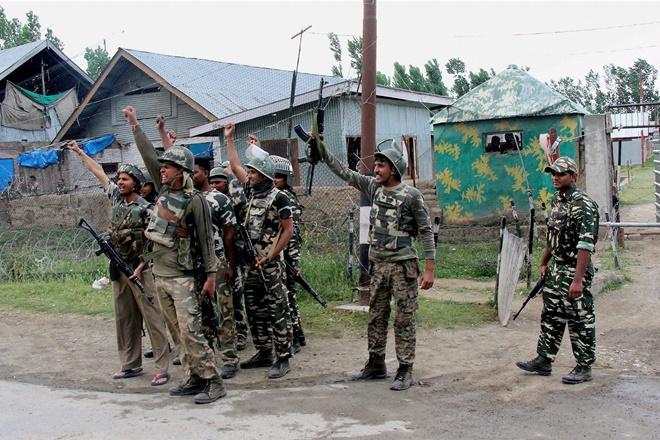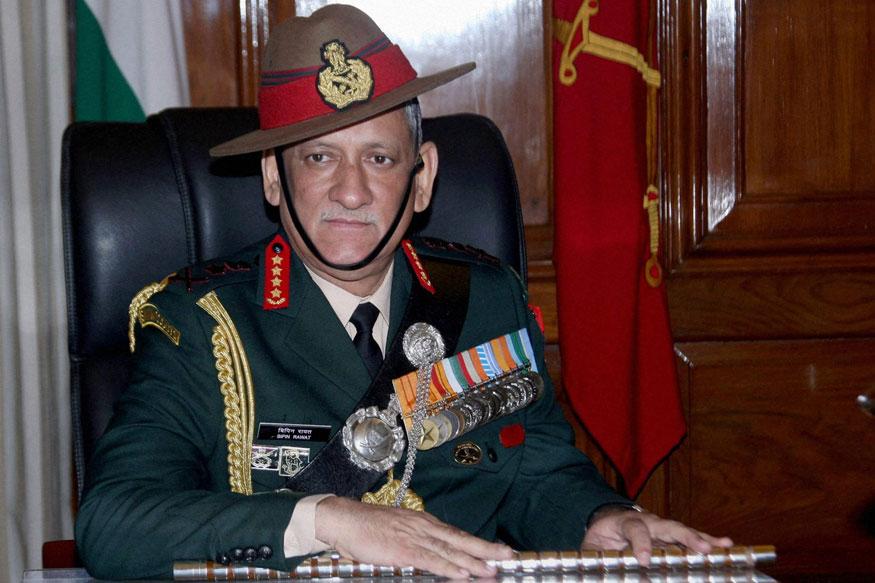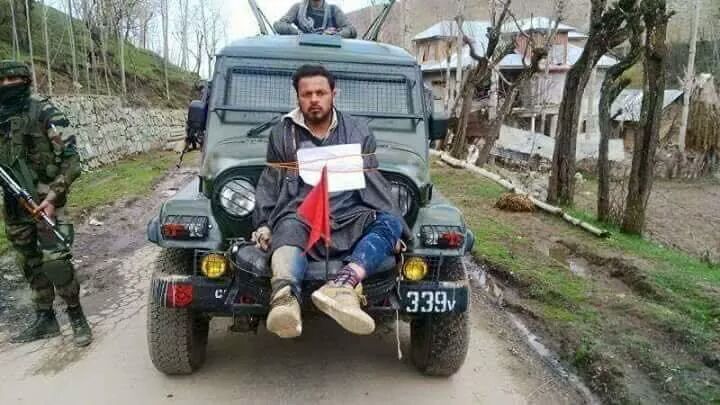A decade long military posturing in Kashmir has it that whenever any ‘war-weary’ soldier gets consumed by a comrade’s gun, it has to do with work-related stress and the killer troopers’ domestic tensions.
It may not be a thing of wonder if the fresh killing by a soldier who pumped five bullets into major Shikhar Thapa of 71 Armoured Regiment on Tuesday in Kashmir Uri’s sector might end with the same logic. The latest fratricide episode happened after Thapa pulled up the soldier for using mobile phone while on duty in a sensitive area.
While only a military probe will unearth facts behind the bloody episode, the pattern in fratricide killings in the Indian army in the Valley is quite blatant to predict the possible outcome.
After witnessing a thaw between 2006 and 2010, fratricidal deaths became perilously frequent in the Indian Armed Forces lately due to an amalgamation of different factors, the prominent being the unpredictability of threats.
Though the defence ministry has maintained disarrayed figures on this fatal military trend, but the growing incidents only make it appear a grave concern.
In June 2014, an RTI filed by Jammu Kashmir Coalition of Civil Societies, revealed that out of seven incidents of fratricides that summer, five had happened in militancy-prone areas while two fratricides happened at the Line of Control due to an altercation between the army units.

When taciturn trooper Ranveer Singh walked into two rooms of Army’s 13 Rashtriya Rifles unit in Safapora Ganderbal barrack during a midnight in Feb 2014, he shortly mounted five bodies of his colleagues before taking his own life.
That Jatt gunner from Haryana was termed a loner by his superiors and a victim of “stress” in a region where the threat of militancy and civil strife dominate the scene since 1989.
Such acts are often equated with fragging—the classic example of which still comes from the Vietnam War where US soldiers rolled fragmentation grenades into the tents of unpopular officers. Many army officers are saying that they are in the middle of “low-intensity” fragging in Kashmir. The outcome of such fatal instances in an unabated conflict called Kashmir has already triggered “mental chaos” in the soldiers.
In fact, the frequent fratricide incidents in the world’s 3rd largest military force is a sign of a disturbed mindset, says Dr. Arshad Hussain, Kashmir’s prominent psychiatrist. And for this, he says, domestic and duty-induced stress is responsible. “Since such acts are no more accidental, therefore the soldiers need psychological help,” the doctor says.
While a sudden surge in fratricide killing might be seen as a long term effect of Post Traumatic Stress Disorders (PTSDs) among Indian soldiers, but the military establishment has its own ways of looking at these things.
A BB Cant-based army official blames the lack of oxygen and a sense of isolation in a high-altitude region like Kashmir for triggering fratricide tendencies in soldiers. “As per our own finding, the prolonged deployment of the armed forces for counter-insurgency purposes in Kashmir is also behind this mental woe,” said the army official.
“Also, a larger sense prevails in the army that they have been pitted against their own disgruntled people rather than an identifiable enemy.”
What the official said was earlier reported by the BBC, saying that the morale among soldiers stationed in the valley is very low.
“Many soldiers are becoming increasingly uncomfortable with their role in Kashmir, saying they fear they are effectively becoming an army of occupation,” the report said. “The army is fighting a legacy of political betrayal, infiltration, rigging in local elections, cynical politics, bad governance, vested interests, religion and regional divides.”
The officer quoted in the report acknowledges how difficult it is for the army to operate in an environment where many people want the army to withdraw, and said that, despite efforts to reach out to Kashmiris, the army remains unpopular.
Much of this unpopularity stems from the fact that the Indian army has been engaged in counter-insurgency operations in Kashmir for the last 27 years. In fact, more and more personnel are volunteering to serve the tenure in the specialist counter insurgency force deployed in J&K: the Rashtriya Rifles (RR).
Some of these combatants are even requesting for extended or second tenures – as being RR means being privileged. Besides better pay and allowances, RR gunners have improved facilities and a timely leave in operational areas.

Indian Army Chief Gen Bipin Rawat
“But then there are hidden combat costs involved in this line of work,” the BB Cant official continued, “which are often being brushed aside to maintain the pride that the Indian army is highly motivated and trained to cope with pressure. But the fact remains, the army is losing more men to suicide and fratricide than to enemy bullets.”
Absence of the necessary relief after a stressful stint is also being attributed to the cause. “In such a stressful state,” said an army major, “even a normal rebuke or scolding is enough to ignite them.”
To address this ‘security stress’ and to suggest remedial measures, union defence ministry constituted an expert group of psychiatrists in December 2006 under the Defence Institute of Psychological Research (DIPR).
It distributed field manuals on suicides and fratricides besides sought help from religious teachers, JCOs of Army Education Corps and regimental medical officers. Emphasis was laid on strengthening the buddy system, by which soldiers can share emotions and feelings with someone they can trust.
“Unlike earlier, soldiers today are educated and aware of their rights,” a Ministry of Defence (MoD) official said. “They do not consider themselves as inferior to the officers and can’t take non-sense or any offense on their chin.”
But there is the fear of death behind the escalating sense of fratricide in Indian army in Kashmir, writes psychiatric social expert Anshu Gupta in his paper, Stress in Indian Army: A Psychological Perspective of Present Scenario & Needs. “In spite of the fact that one day everyone has to die and the nature of army profession are such that this fact becomes more evident.”

Farooq Ahmad Dar used as a human shield by Indian army Major Neetan Leetul Gogoi on April 09, 2017.
Gupta also blames the “guilt feeling” in Indian soldiers behind such deaths. “In spite of the hard training, many soldiers may suffer from guilt feeling of killing a fellow human being.”
Despite this “alarming” sense in Indian army, its chief wants it to fight a “dirty war” in Kashmir.
In fact, Bipin Rawat even honoured major Gogoi for using a Kashmiri weaver as human shield. The honour, he said, was given as a way of boosting the morale of young officers.
“This is a proxy war and a proxy war is a dirty war. It is played in a dirty way. That is where innovation comes in. You fight a dirty war with innovations,” the general said.
The general’s worry is that Kashmiris are losing their fear of his troops, while his troops’ worry is that they are effectively becoming an “army of occupation”. Amid this, what happened at Uri today might not end in Uri itself.












